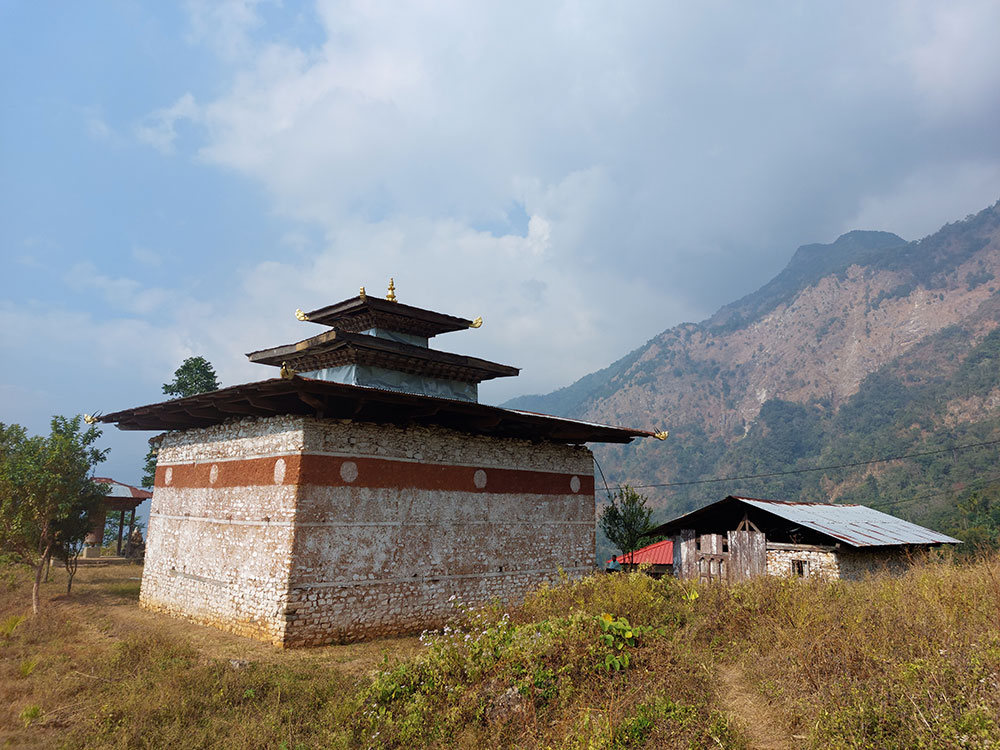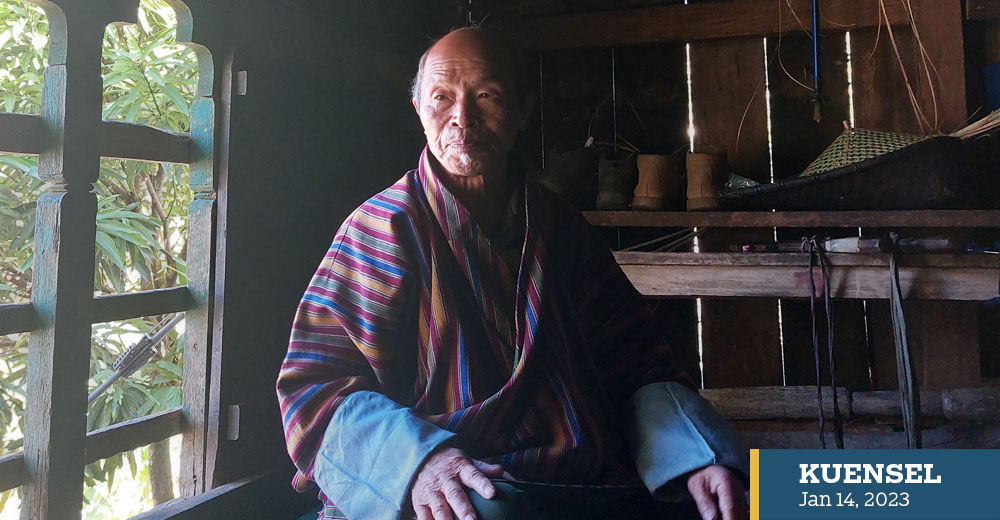Choki Wangmo | Chhukha
Travelling to new places is a joy, more so when you don’t have a guide.
Baeyul Kunzang in Chhukha was a mysterious place for me. Gongto, a member of the Jigmechhu campsite, led me to Serchu. I found him sitting on the steps of the village lhakhang after lunch.
Wearing a bright red half jacket over a stripped gho, he waved towards us. At 79, Serchu is brawny and quick-witted; his eyes hold stories from the yesteryears.
Serchu opened the door of the small chapel that houses two statues of ladies in traditional Bhutanese attire. He told to prostrate and offer prayers in front of the local deity, Aum Yangthang Yangchum. “She will grant all your wishes.”
Inside the main sanctum, at the end of the line, I saw Buddhists scriptures and a half-written note. Serchu spends most of his time in the community’s only lhakhang that he helped build 36 years ago. He is planning its first maintenance very soon.
Originally from Zamsa in Chhukha, Serchu came to Baeyul Kunzang early on. The villagers call him Lopen Serchu. He accepts the title with humility.
Villagers still respect him for educating their children and blessing them with the first school in the community in 1992. “The children from the village then had to spend a night on the way to get to their school in Bongo,” says Serchu.
Reflecting on his life, Serchu said that his education and decade-long public service did not benefit the community much. “I earned only Nu 150 a month which was not enough to help them financially.”
He collected Nu 20 from each household and started the school with 65 students. “It was a private initiative; there was no help or support from the government.”

When the school was completed and lessons began for the students, Serchu was questioned several times by government officials. But there was no going back.
After a year, he surrendered the school to the government. Today, the school has 45 students. The same year, he started a non-formal education for the villagers.
Serchu loved learning and encourages others to learn.
After his mother’s death at a young age, Serchu faced a lot of hardships. “If I were to talk about my struggles, I wouldn’t know from where to start and where to end,” says Serchu, laughing off.
After a brief time at the then Rigzhung School, Serchu worked in the civil service from 1971 to 1984. “I was the printer and proofreader at the Kuenphel Leykhung.”
Kuensel was then known as Kuenphel Leykhung.
“It was a risky job with huge machines,” says Serchu. “I could have easily lost a finger or two with no prior training.”
“Printing English news was fine,” he remembers. “It was very difficult with Dzongkha letters. We had to work for very long hours.”
After Kuenphel Leykhung, Serchu was posted as a teacher in the south. “I did not speak Lhotshamkha. It was challenging but also fun.”
When schools in the south of the country closed due to insurgent problems in the 1990s, Serchu collected books and teaching materials from eight schools and donated them to schools in Zhemgang.
Coming to Baeyul Kunzang then, he wanted to open a shop and raise a family. “But then, I realised it was too late for me.”
So, living in a small hut, he worked as a temporary teacher in Bongo.


